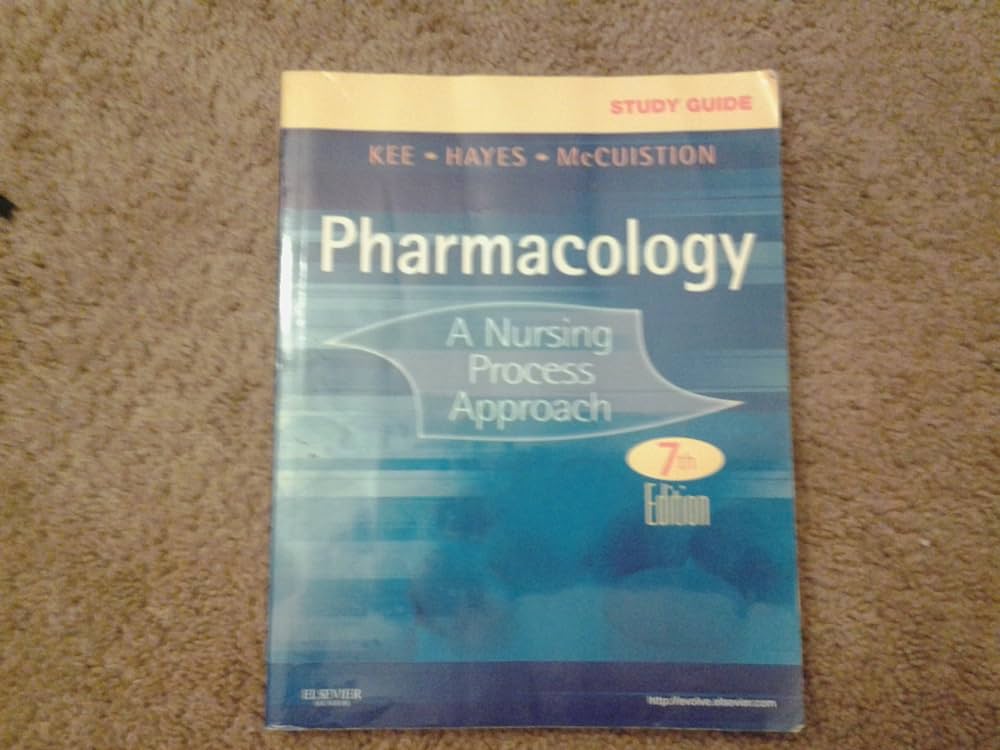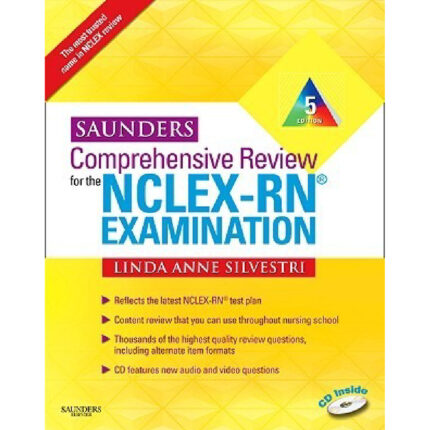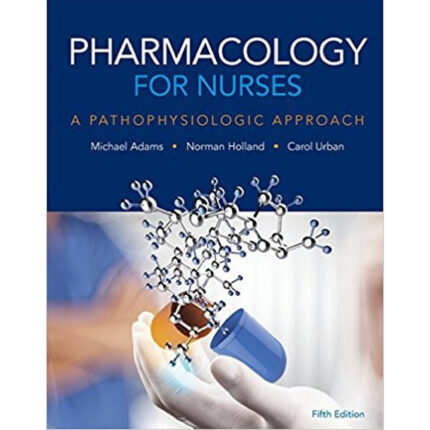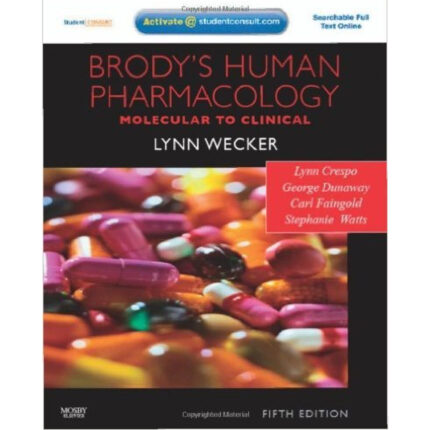Pharmacology A Nursing Process Approach 7th Edition By Kee – Hayes – Test Bank
Kee: Pharmacology, 7th Edition
Chapter 11: Pediatric Pharmacology
Test Bank
MULTIPLE CHOICE
1.Neonates and infants have a decreased metabolism and excretion of drugs because of immaturity of which organs?
a. Lungs and kidneys
b. Liver and kidneys
c. Spleen and pancreas
d. Gastrointestinal tract and kidneys
ANS: B
The liver and kidneys are the primary organs for metabolism and excretion and are immature in infants.
DIF:Cognitive Level: ComprehensionREF:p. 179
TOP:Nursing Process: Analysis
MSC: CONTENT CATEGORY: Physiological Integrity: Pharmacological and Parenteral Therapies
2.The gastric pH of children younger than 3 years is more alkaline than that of adults. Penicillin can be destroyed by gastric acidity. The penicillin dose for a child younger than 3 years compared to that for an adult should be:
a. the same.
b. higher.
c. lower.
d. doubled.
ANS: C
Because the child’s gastric pH is more alkaline than the adult’s, less penicillin will be destroyed. Therefore, the dose should be decreased.
DIF:Cognitive Level: AnalysisREF:p. 178
TOP:Nursing Process: Analysis
MSC: CONTENT CATEGORY: Physiological Integrity: Pharmacological and Parenteral Therapies
3.Infants have decreased plasma protein-binding sites because of decreased plasma protein and albumin levels. With drugs that are highly protein bound, how should the drug dose for infants be different from that for adults?
a. It should be higher.
b. It should be lower.
c. It should be the same.
d. It varies by client.
ANS: B
With fewer protein-binding sites, there is more active drug available. This requires a reduction in the dose for infants.
DIF:Cognitive Level: AnalysisREF:pp. 178-179
TOP:Nursing Process: Analysis
MSC: CONTENT CATEGORY: Physiological Integrity: Pharmacological and Parenteral Therapies
4.Drug half-life for an older child can be shortened because of increased metabolic rate. How does this affect the drug dose for older children versus that for adults?
a. It is increased because of drug metabolism.
b. It is decreased because of drug metabolism.
c. It is decreased because of an increased half-life.
d. It is the same as that for adults.
ANS: A
With a shorter half-life, more of the drug is eliminated quickly. This requires a higher dose of the medication.
DIF:Cognitive Level: AnalysisREF:p. 179
TOP:Nursing Process: Analysis
MSC: CONTENT CATEGORY: Physiological Integrity: Pharmacological and Parenteral Therapies
5.The nurse understands that the drug distribution in an infant is affected by which factor?
a. Infants have fewer protein receptor sites.
b. Albumin levels are increased in infants.
c. Infants have lower levels of extracellular fluids.
d. Body fluid proportion for weight is decreased in infants.
ANS: A
Infants have less albumin than older adults and fewer protein receptor sites available for binding with medication. Infants have higher levels of extracellular fluids, increasing the tendency for dehydration and changes in distribution of water-soluble medications.
DIF:Cognitive Level: ComprehensionREF:pp. 178-179
TOP:Nursing Process: Analysis
MSC: CONTENT CATEGORY: Physiological Integrity: Pharmacological and Parenteral Therapies
6.What does teaching to clients with children include?
a. Advising the client and family to keep medications in readily available, convenient locations
b. Instructing the client and family not to be concerned with side effects of medications
c. Telling the client and family to purchase over-the-counter drugs to reduce costs
d. Instructing the client and family to use child-resistant medication containers
ANS: D
Child-proof medications may decrease the risk for inadvertent ingestion.
DIF:Cognitive Level: ApplicationREF:p. 184
TOP:Nursing Process: Intervention/Teaching
MSC:CONTENT CATEGORY: Health Promotion and Maintenance
7.The _____ route is the most exact and predictable route through which to administer medications to children.
a. oral
b. rectal
c. intramuscular
d. intravenous
ANS: D
The IV route allows for the greatest titration and bioavailability of the medication. The other routes are less exact.
DIF:Cognitive Level: AnalysisREF:p. 178
TOP:Nursing Process: Intervention/Implementation
MSC: CONTENT CATEGORY: Physiological Integrity: Pharmacological and Parenteral Therapies
8.The nurse develops a medication teaching plan for an adolescent client. Which principle will be highest priority to include when teaching the adolescent client?
a. Emotional development occurs at the same time for all adolescents.
b. All information shared with the nurse will remain confidential.
c. The client can be assured of appropriate levels of privacy.
d. Adolescents do not need assistance with decision making about medications.
ANS: D
The nurse plays a key role in establishing a productive working relationship with an adolescent. Appropriate levels of privacy will demonstrate trust and the increased need for independence in the adolescent and may provide an opportunity for the adolescent to verbalize questions/concerns. Emotional development in an adolescent occurs on an individual basis. The nurse must exercise care in offering confidentiality in the event that information needs to be divulged to other healthcare providers. Adolescents may require help with decision making.
DIF:Cognitive Level: ApplicationREF:pp. 180-182
TOP:Nursing Process: Intervention/Teaching
MSC:CONTENT CATEGORY: Health Promotion and Maintenance
9.The nurse prepares to administer a crushed medication to an 11-month-old child. Which food or beverage will the nurse mix with the medication to make it more palatable?
a. Ginger ale
b. Honey
c. Jelly
d. Milk
ANS: C
Medications can be made more palatable by adding jelly or syrup. Honey should not be given to infants younger than 1 year owing to the increased risk of botulism. Carbonated beverages are not appropriate to mix with medications for an infant and, depending on the medication, may interact with the medication. Milk should not be used; it may also interact with the medication.
DIF:Cognitive Level: ApplicationREF:pp. 180-182
TOP:Nursing Process: Planning
MSC: CONTENT CATEGORY: Physiological Integrity: Pharmacological and Parenteral Therapies
10.An infant client is ordered to receive a topical silver nitrate ointment to prevent infection after sustaining burns. The nurse be especially vigilant for signs of silver toxicity because:
a. infants have immature liver function and metabolism.
b. infants have decreased renal function and renal clearance.
c. infants’ bodies have increased body water composition.
d. infants have thinner skin, allowing for greater absorption.
ANS: D
The thinner epidermis allows for greater absorption of topical medications, increasing the risk for toxicity.
DIF:Cognitive Level: ApplicationREF:p. 178
TOP:Nursing Process: Assessment
MSC: CONTENT CATEGORY: Physiological Integrity: Pharmacological and Parenteral Therapies
11.In terms of calculation of drug dosages, which information will be most important for the nurse to collect regarding a pediatric client upon his or her first clinic visit?
a. Health status, nutritional status, and hydration status
b. Age, weight, and height
c. Current use of prescription, over-the-counter, and herbal medications
d. Allergy history of the child and family allergy history
ANS: B
Age, height, and weight are used to calculate drug dosages for the pediatric client.
DIF:Cognitive Level: AnalysisREF:pp. 183-184
TOP:Nursing Process: Assessment
MSC: CONTENT CATEGORY: Physiological Integrity: Pharmacological and Parenteral Therapies
12.The nurse is caring for a pediatric client who has a long-term, chronic illness. The nurse notes that the client needed an increase in his medication dosage once he reached age 14 years. The nurse is aware that this is most likely due to:
a. hormonal changes and growth spurts.
b. decrease in the metabolic rate.
c. decrease in sleep requirements.
d. slowing of physical maturation.
ANS: A
The adolescent client may require an increase in his medication dosage because of hormonal changes and growth spurts that he is experiencing.
DIF:Cognitive Level: AnalysisREF:pp. 182-183
TOP:Nursing Process: Assessment
MSC: CONTENT CATEGORY: Physiological Integrity: Pharmacological and Parenteral Therapies













Reviews
There are no reviews yet.